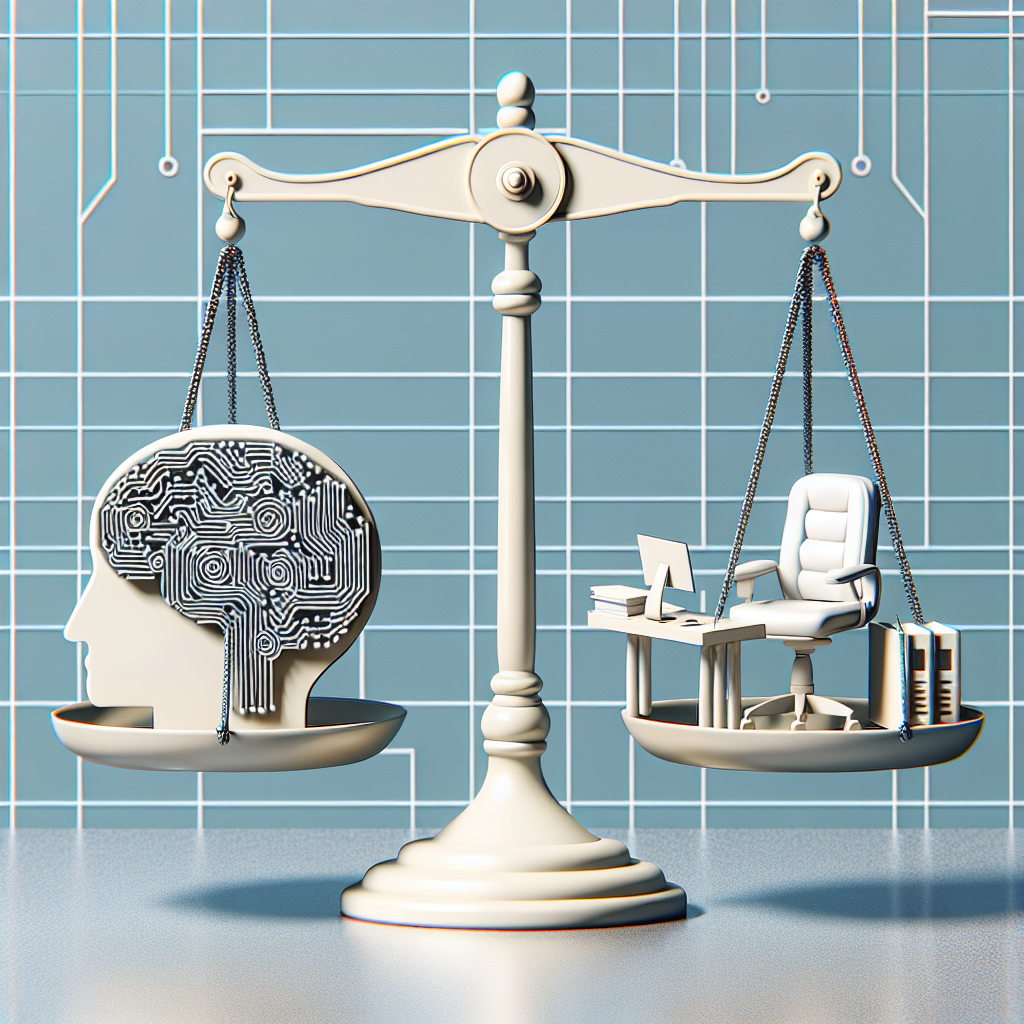The Impact of AI on Workplace Privacy Rights
Artificial intelligence (AI) is revolutionizing the way organizations operate and interact with their employees. From streamlining processes to improving efficiency, AI has become an integral part of many businesses. However, as AI continues to advance, concerns about workplace privacy rights have also emerged.
AI technologies, such as facial recognition software, monitoring tools, and data analytics, are increasingly being used in the workplace to track employee behavior, productivity, and performance. While these technologies can provide valuable insights for employers, they also raise questions about the boundaries of employee privacy and the ethical implications of using AI in the workplace.
In this article, we will explore the impact of AI on workplace privacy rights, the challenges it presents, and how organizations can navigate this evolving landscape.
The Evolution of AI in the Workplace
AI has transformed the way businesses operate, enabling them to automate processes, analyze vast amounts of data, and make informed decisions. In the workplace, AI technologies are being used for a variety of purposes, including:
1. Recruitment and hiring: AI-powered algorithms can analyze resumes, conduct interviews, and assess candidates’ skills and qualifications to identify the best candidates for a job.
2. Performance management: AI tools can track employee performance, provide feedback, and identify areas for improvement, helping organizations to optimize their workforce.
3. Monitoring and surveillance: AI technologies, such as facial recognition software and monitoring tools, can track employee behavior, attendance, and productivity to ensure compliance with company policies.
4. Predictive analytics: AI can analyze data to predict employee behavior, such as turnover rates, absenteeism, and performance, helping organizations to make informed decisions about their workforce.
While these technologies offer many benefits for organizations, they also raise concerns about employee privacy rights and the ethical implications of using AI in the workplace.
Challenges to Workplace Privacy Rights
The use of AI in the workplace presents several challenges to employee privacy rights, including:
1. Surveillance and monitoring: AI technologies can track employees’ movements, activities, and interactions in the workplace, raising concerns about invasive surveillance and the right to privacy.
2. Data protection: AI tools collect and analyze vast amounts of data about employees, including personal information, performance metrics, and behavior, which raises concerns about data protection and privacy.
3. Bias and discrimination: AI algorithms can be biased or discriminatory, leading to unfair treatment of employees based on factors such as race, gender, or age, which raises concerns about equality and diversity in the workplace.
4. Lack of transparency: Employees may not be aware of how AI technologies are being used to monitor and evaluate their performance, leading to concerns about transparency and accountability.
5. Legal and ethical considerations: The use of AI in the workplace raises legal and ethical questions about employee rights, consent, and the boundaries of surveillance and monitoring.
Navigating the Impact of AI on Workplace Privacy Rights
To address the challenges presented by AI in the workplace and protect employee privacy rights, organizations can take the following steps:
1. Develop clear policies and guidelines: Organizations should establish clear policies and guidelines for the use of AI in the workplace, outlining how data will be collected, stored, and used, and ensuring compliance with data protection laws and regulations.
2. Provide transparency and communication: Employers should communicate openly with employees about how AI technologies are being used in the workplace, including the purpose, scope, and implications of monitoring and surveillance.
3. Ensure data protection and security: Organizations should implement robust data protection and security measures to safeguard employee data from unauthorized access, breaches, and misuse.
4. Address bias and discrimination: Employers should regularly monitor and evaluate AI algorithms to identify and address bias and discrimination, and ensure fair treatment of all employees.
5. Respect employee rights: Organizations should respect and uphold employee rights to privacy, consent, and autonomy, and ensure that AI technologies are used in a responsible and ethical manner.
Frequently Asked Questions (FAQs) about AI and Workplace Privacy Rights
Q: Can employers use AI to monitor employees in the workplace?
A: Employers can use AI technologies to monitor and track employee behavior, performance, and activities in the workplace, but they must comply with data protection laws and regulations and respect employee privacy rights.
Q: What are the potential risks of using AI in the workplace?
A: The potential risks of using AI in the workplace include invasive surveillance, data breaches, bias and discrimination, lack of transparency, and legal and ethical concerns about employee rights and privacy.
Q: How can organizations protect employee privacy rights when using AI in the workplace?
A: Organizations can protect employee privacy rights by developing clear policies and guidelines, providing transparency and communication, ensuring data protection and security, addressing bias and discrimination, and respecting employee rights to privacy, consent, and autonomy.
Q: What are some best practices for organizations using AI in the workplace?
A: Some best practices for organizations using AI in the workplace include conducting regular audits of AI algorithms, providing training and education on AI ethics and privacy, obtaining employee consent for data collection and monitoring, and engaging with stakeholders to address concerns and feedback.
In conclusion, the impact of AI on workplace privacy rights is a complex and evolving issue that requires careful consideration and proactive measures to protect employee rights and ensure ethical and responsible use of AI technologies in the workplace. By developing clear policies, providing transparency and communication, ensuring data protection and security, addressing bias and discrimination, and respecting employee rights, organizations can navigate the challenges presented by AI and uphold privacy rights in the workplace.

